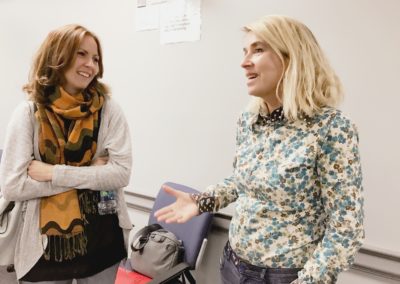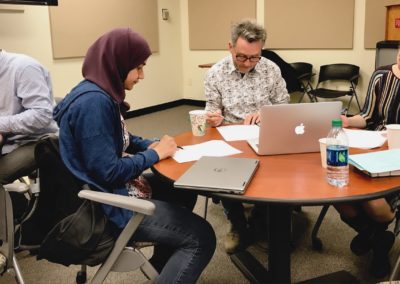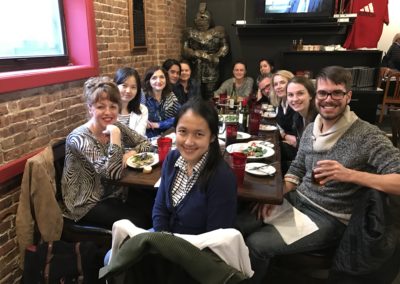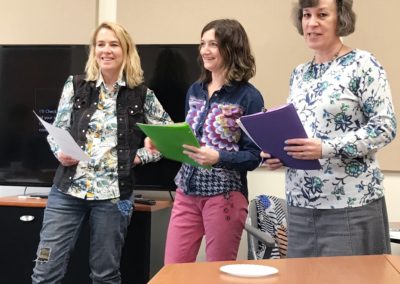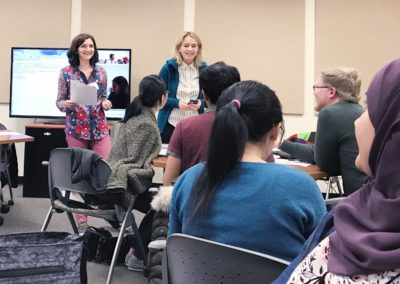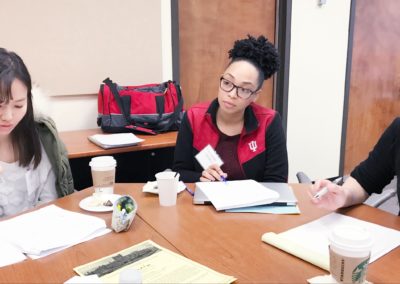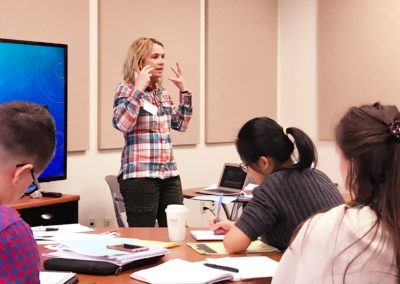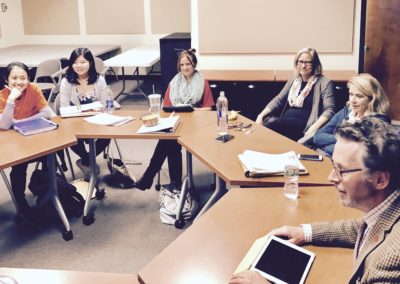Spring 2018 Conversation Analysis Workshops
Rutgers Communication Department Conversation Analysis Faculty will be holding a series of 2.5-day Introductory Conversation Analysis Training Workshops, offered by Galina Bolden, Alexa Hepburn, Jenny Mandelbaum, and Lisa Mikesell.
- 26 – 28 January Turn-taking in conversation
- 16 – 18 February Action sequencing and preference organization
- 13 – 15 April Repair and person reference
Workshops are designed for graduate students and researchers interested in developing skills in qualitative analysis of social interaction (specifically, Conversation Analysis). Sessions will comprise primarily small group activities, involving systematic introduction to instructional content and data analysis procedures, working with a wide range of data corpora, including everyday interactions, family mealtimes, medical and clinical encounters, and emergency helplines. Instruction in transcription will also be provided.
Workshops are suitable for beginners and for those seeking to consolidate existing skills. See below for further information on each workshop.
The cost of the workshops will be $350 per workshop for faculty, $200 for graduate students (some 50% scholarships available). There will be a $100 discount if you register for all three workshops. The registration deadline for the first workshop is January 16, 2018. Additional registration information will be provided shortly.
Rutgers graduate students and doctoral students at other schools participating in the Inter-University Doctoral Consortium can enroll into the workshops by registering for a three graduate credit course (course information: 16:194:671 Topics in Communication Processes – Intro to Conversation Analysis).
Limit: Numbers will be limited to 15 participants. Register now to reserve your space.
Please direct any further inquiries to Alexa Hepburn alexa.hepburn@rutgers.edu
Turn-taking in conversation
January 26 – 28, 2018
Faculty to include Galina Bolden, Alexa Hepburn, Jenny Mandelbaum and Lisa Mikesell
Content
The organization of turn taking is fundamental to conversation. This workshop will explore how speakers identify and orient to units of talk, as well as the resources interlocutors have available to project speaker transition, and the identification and implications of transition relevance places. We also discover how to tell the difference between overlap and interruption, and demonstrate how to produce an accurate transcript that captures a broad range of vocal and non-vocal elements of speaker delivery. Participants will be expected to complete a reading assignment and an analytic exercise beforehand and to submit a final exercise afterwards.
Start and finish: The workshop will start at 1:30 on January 26th and finish at 1:00pm on Sunday 28th.
Action sequencing and preference organization
February 16-18, 2018
Faculty to include Galina Bolden, Alexa Hepburn, Jenny Mandelbaum and Lisa Mikesell
Content
In this workshop, we explore how participants build courses of actions in conversation. We cover such issues as: types of adjacency pairs; sequence expansions; notions of alignment and affiliation; preference organization in relations to both initiating and responding actions; the role of sequence expansions and turn design in the maintenance of social solidarity. Participants will be expected to complete a reading assignment and an analytic exercise beforehand and to submit a final exercise afterwards.
Start and finish: The workshop will start at 1:30 on Friday 16th and finish at 1:00pm on Sunday 18th.
Repair and person reference
April 13-15, 2018
Faculty to include Galina Bolden, Alexa Hepburn, Jenny Mandelbaum and Lisa Mikesell
Content
This workshop covers two distinct areas of conversation analysis: repair and person reference. First, we examine conversational repair, i.e., practices for dealing with troubles of hearing, speaking, and understanding. We cover such topics as: initiation of repair by self and other, repair resolution by self and other, repair operations, and repair opportunity space, distinguishing between same turn, transition space, next turn, third turn, and third position repair. Second, we examine practices for referring to persons and cover the implications and affordances of selecting different person reference forms and explore person reference in relation to action formation, preference organization, and epistemics. Participants will be expected to complete a reading assignment and an analytic exercise beforehand and to submit a final exercise afterwards.
Start and finish: The workshop will start at 1:30 on Friday 13th and finish at 1:00pm on Sunday 15th.

